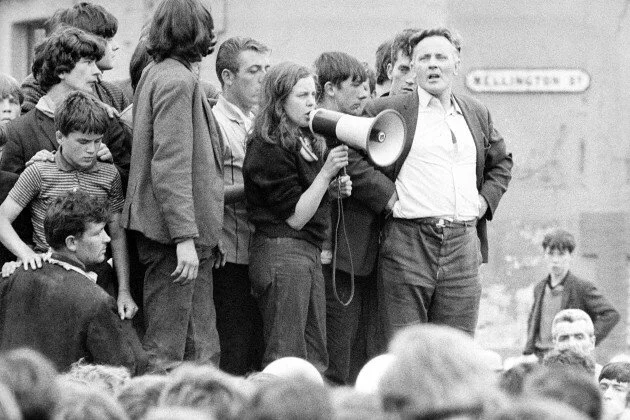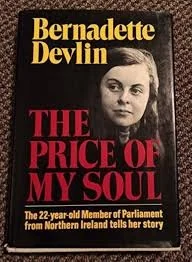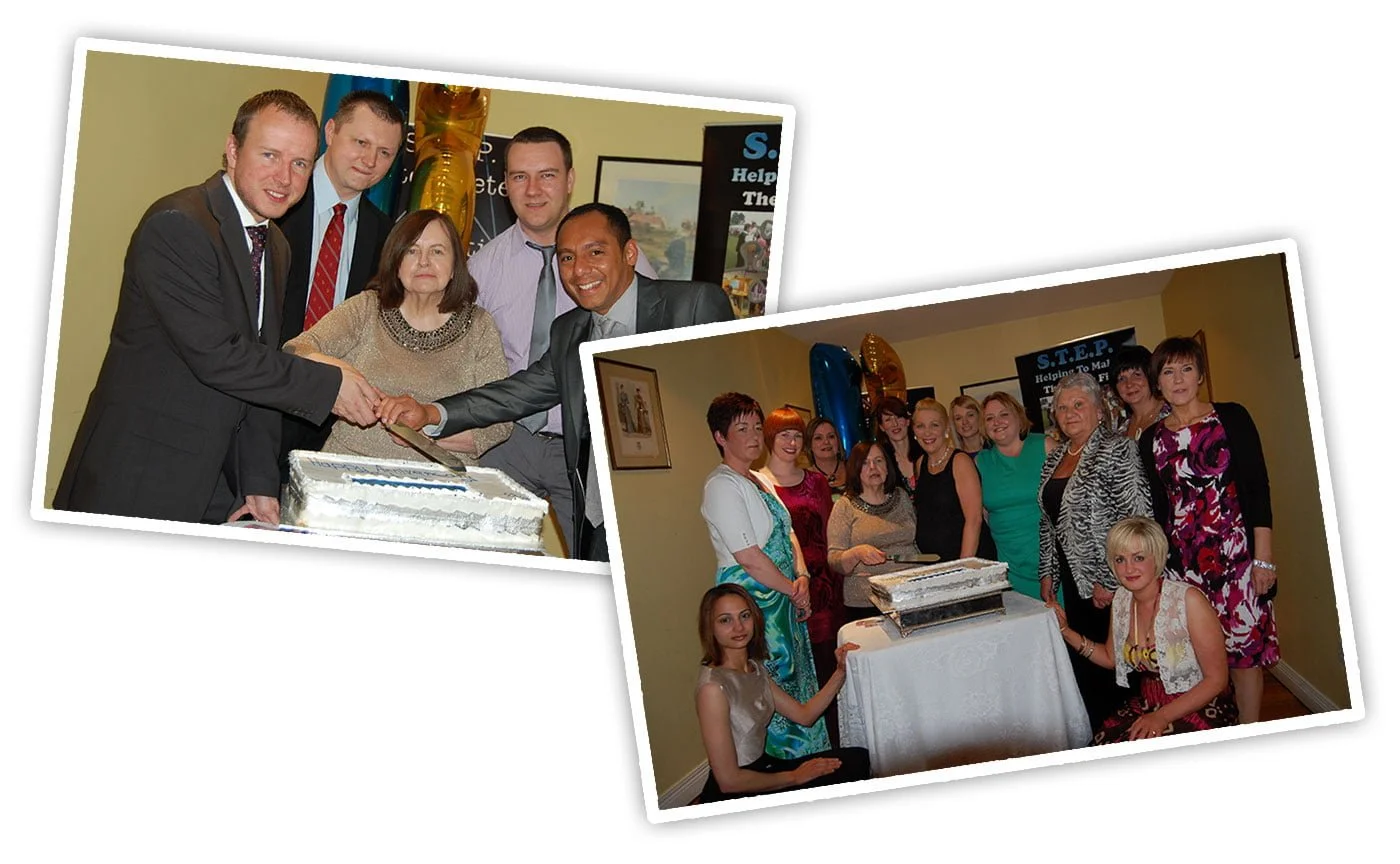Aug. 12 1969 - Battle of the Bogside and Bernadette Devlin - The Troubles begin
The Troubles began in Ireland 56 years ago on August 12.
So say many historians of the conflict in the Six Counties. Others will tell you it all began eight centuries ago.
Let’s go with 1969. For three hot August days that year, the Royal Ulster Constabulary and Protestant Loyalists waged urban warfare with the overwhelmingly Catholic population of a district known as the Bogside in Derry.
By the time both sides had been worn down, two developments altered the course of Irish history. The first was that British troops came to the Six Counties for the first time since 1921and the Irish War of Independence. Their presence would reinvigorate the IRA. Future columns will deal with that aspect of The Troubles. Secondly, Bernadette Devlin would become even more famous.
Who was Bernadette Devlin?
Had the internet existed then, Bernadette Devlin McAliskey would have gone viral in 1969. Her leadership at the battle that started The Troubles in Ireland accelerated her worldwide exposure but also would lead to a polarizing American campaign.
The world hadn’t seen an Irishwoman like this since Countess Markiewicz and Maud Gonne.
An orphan who raised her siblings while still a teenager and attending Queens University. In April 1969 she became the youngest woman ever elected to Parliament. She was 21. She took her seat representing Mid Ulster in the North of Ireland one day before her 22nd birthday and ignored tradition by giving a speech after her swearing in.
“A 21-year-old Irish girl held the House of Commons spellbound today with a maiden speech of quiet eloquence and powerful emotion.” New York Times
On August 12 of 1969 she was present as police in Derry tried to enter a Catholic enclave called The Bogside so they could arrest the people throwing things at them – from rocks to petrol bombs. As organizer of a group called People’s Democracy, Devlin rallied the resistance to the RUC raid. The Battle of the Bogside lasted three days. 83% of to damage done to houses and businesses was done to Catholic property. No one died. Many were injured.(Devlin was later sentenced to six months in jail for her role. She served four.)
The dust in Derry had barely settled when she was off to America. Her mission was to make sympathetic Irish Americans aware of what was happening in the North and to raise money for Catholics who suffered losses during the siege.
Meet The Press. The Tonight Show with Johnny Carson. The Dick Cavett Show. Bernadette Devlin seemed to be everywhere that summer 56 years ago. She even wrote a book.
She spoke as an unabashed socialist and feminist. “I’m as left as James Connolly and the starry plough,” she said often. On Meet The Press she spoke of a United Ireland and quoted Connolly, the most socialist of the leaders of the Rising, and Padraig Pearse. She was 22, brilliant and unlike any Irishwoman ever seen in America. On Meet The Press, no less.
But how did such talk of socialism go over with Irish America? Not well I imagine. Can’t you hear your uncle Sean, the conservative, saying, “Sure, she was great on the tube, and the stuff about a 32-county Ireland is grand. But the Brit who called her ‘Castro in a mini skirt’ isn’t too far off, you know.”
Sean was just getting started. “You know what she did with the key to the City of New York that Mayor Lindsay gave her?
“She turned around and handed it to some Black Panthers in Harlem.” Actually, she didn’t personally give the big key away, a representative did. Irish Give Key to City To Panthers as Symbol read the headline in the New York Times.
Uncle Sean (and Uncle Sam) notwithstanding, some influential Irish Americans fell in love with “Bernadette Devlin, who for so many years showed Catholics in Northern Ireland how to breathe and be as unafraid as she was, and by doing so placed the first jobs they ever had into their lives, this small woman with music for a voice who thrilled so many Irish in New York...” wrote the great Jimmy Breslin in the New York Daily News, the paper most Irish Americans in New York preferred.
She was re-elected to Parliament and served in Westminster until 1974. In 1972 she slapped Home Secretary Anthony Maudling in Britain's House of Commons after he dismissed the killing of 13 unarmed civilians on Bloody Sunday. She was in Derry that day.
After 1974 she never won another election but remained active and aware and socialist. The descriptions followed her. Miss Devlin, a militant proponent of civil rights for the Roman Catholic minority... Bernadette Devlin, the fire brand Roman Catholic legislator... Bernadette Devlin, the Irish civil rights leader. A former member of Parliament, she has long been a leader in the movement to end British rule in Northern Ireland.
In 1981 she stepped up to support the IRA hunger strikers. It almost cost her her life and that of her husband Raymond McAliskey. On the night of January 16, 1981 two masked men took sledge hammers to the front door of the family home in very rural County Tyrone.
UNITED PRESS INTERNATIONAL 17.1.1981 - In the attack Friday, Michael McAliskey was shot in the back and legs at point-blank range when gunmen burst into the couple's lonely farmhouse on the shores of Loch Neagh at Coalisland in County Tyrone, 40 miles northwest of Belfast. Just before he was wounded, McAliskey shouted a warning to his 33-year-old wife who was able to hide upstairs under a bed, pulling clothes and the mattress over her. The gunmen barged into the room and fired blindly at the bed, wounding Mrs. McAliskey in the chest and legs.
Cutting the cake with co-workers in Co. Tyrone at the offices of the South Tyrone Empowerment Program.
Still active after all these years
Bernadette Devlin McAliskey survived and is alive and well in Co. Tyrone. She turned 78 on April 23. She and Michael married in 1973. In the 1990s she founded STEP – South Tyrone Empowerment Program – a charitable org. which works with migrants who call Mid-Ulster home and members of the Traveller community. She’s one of thousands of women like her around the world who went to the barricades, went into politics, raised a family (3 kids, 7 grandkids) and brought their energies to where they are needed. Other than the occasional public appearance and newspaper story, her life is still the work. And there’s work to be done. STEP is located in Dungannon which is near where on July 11 supporters of the Loyalist cause caught the world’s attention with this.
11 JULY 2025.






